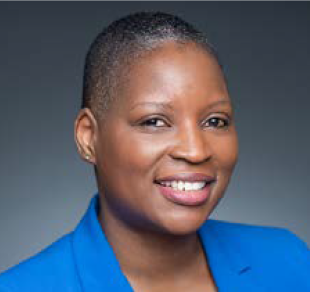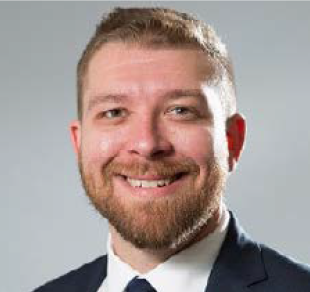
- This event has passed.
Power of Philanthropy: Supporting Children’s Advocacy Through Strategic Framing

Baked into our mission is that this work is generational. When it comes to supporting long-term mind shifts, we know it will take more than a grant cycle. So, we approach this work not just in terms of ‘policy wins’ or trying to shift a narrative in two years. It is much more about seeking to strengthen an ecosystem to create stronger narratives and frames over time….That is how we’ve approached the work and why I’ve been really excited to see more funders recognizing that narrative change is a long-term endeavor.
–Jeanette G. Elstein, MPH, Robert Wood Johnson Foundation
In this Funder-to-Funder Conversation, Jeanette Elstein of Robert Wood Johnson Foundation (RWJF), offered the above statement as she described her foundation’s investments in the development and implementation of the Collective Caregiving frame. Thank you for registering for this funder-focused session and joining us to explore this new frame and the roles that philanthropy can play in promoting narrative change as a part of efforts to improve outcomes for children and families.
John Gomperts, an executive fellow with CGLR and the board chair for Leading for Kids, set the stage for the conversation by describing evolving efforts over the years that have sought to rally broader public support and demand for better investments and better outcomes for kids and families. Ernestine Benedict, with ZERO TO THREE, then moderated the session, inviting Elstein and David Alexander, MD, of Leading for Kids to provide an overview of the Collective Caregiving frame and RWJF’s work to ensure that parents and caregivers have the resources they need to promote thriving families.
Alexander explained how Leading for Kids worked with the FrameWorks Institute over the course of four years to craft the frame. Responding to social science research, the Collective Caregiving frame is designed to stretch the existing cultural mindset that children need care and that child outcomes are affected by the care provided to them by the people in their lives. It seeks to build on that mindset but extend the idea of care coming only from the people in a child’s life — family members, teachers, health care providers, etc. — to include the systems and issues that affect a child’s well-being, such as housing, food, the tax code, etc. The frame includes three recommendations intended to help stretch those mindsets:
1. Care is collective — Describe policies and other forms of collective action as caregiving.
2. Care must be inclusive — emphasize that we owe care to every child in every community, moving beyond the focus on “my” kids or kids like mine.
3. Care is expansive — Illustrate that collective caregiving happens everywhere, through every issue and is not limited to the narrow set of issues typically seen as “children’s issues.”
The purpose of this new frame is to broaden the tent of people who are interested in the well-being of all of our kids….This frame was not designed to be a response to our current politics….It was designed to meet the culture where it’s at now….But I will note that while this frame works well with all audiences, we did find that it works especially well with people who define themselves as conservative or Republican.
–David Alexander, MD, Leading for Kids
Elstein shared that RWJF funded the development of the Collective Caregiving frame to establish a strong baseline of research about existing mindsets and frames and to equip activists, advocates and practitioners with more effective frames so that they can more effectively advocate for a better future for children and families. She also described how her portfolio is internalizing this research into its own strategies and supporting Leading for Kids and other advocates and communications professionals as they craft toolkits for practitioners to use in applying this frame. Through Every Family Forward, RWJF is hosting learning sessions to introduce the frame to partners and grantees and invite them into a conversation about how they can collectively address the narrative and policy dimensions of our nation’s child care system.
Benedict then invited two other funders with deep expertise in advocacy and systems change work — Marica Cox Mitchell of Bainum Family Foundation and Dave Stone of United Way of Central Iowa (UWCI) — to describe their advocacy efforts and reflect on how the Collective Caregiving frame might enhance them.
Stone explained how UWCI’s cradle-to-career approach aligns nicely with the new frame, building support for children and families from early childhood to the adult workforce, including support for essential needs such as housing, nutritious food and health care. He noted the timeliness of the release of this frame as the nation is seeing a deeper embrace of the idea of individualism, underscoring the need for frames that can encourage a collective shared vision for children and families.
What I think is really important about this frame is the idea of care being collective. This creates buy in across the community. It is not just my kids, not just my family or my network. It is a community. Lifting up that community focus is much better than the individualistic focus that we are heading into.
–Dave Stone, United Way of Central Iowa
Mitchell described how Bainum embraces a “both-and” approach as it helps families navigate existing systems while simultaneously working to reimagine and re-envision those systems to better support children and families. She noted how the new frame aligns with the science of development and the need to focus on the ecosystem in which a child is learning and developing. Mitchell also applauded RWJF’s efforts to mine existing mindsets to inform its systems change approaches.
I think [the Collective Caregiving frame] is very reassuring and aligns research, policy and practice in a beautiful way. I also think it will be more effective because it is America-centric. Typically, when advocates are asked about an example of a progressive policy, we turn to Germany or Finland. Those are great examples, but can we contextualize them a little for who we are? I think this framework does that. It pushes us to be better, but it’s very American-centered.
–Marica Cox Mitchell, Bainum Family Foundation
If you were able to attend the session, we would love to hear your feedback! We appreciate your help in filling out the following form as we seek to learn and understand the perspectives, ideas, critiques and recommendations that better inform our key audiences.
Panel







